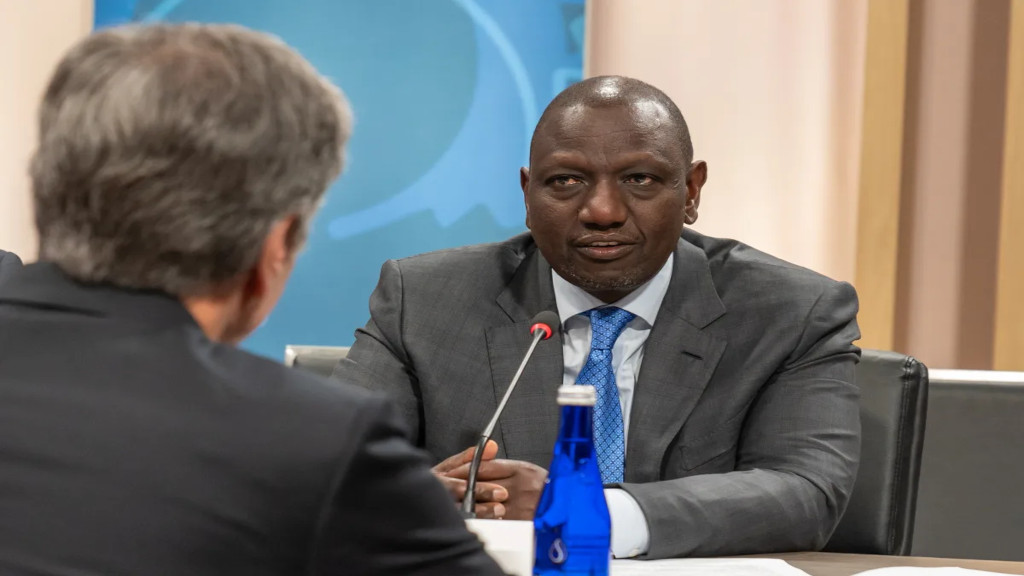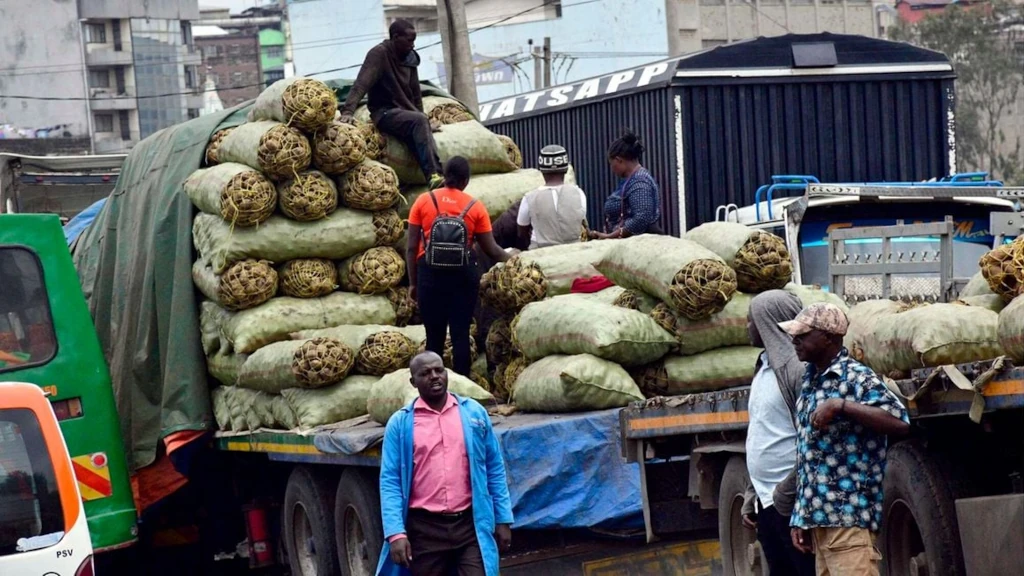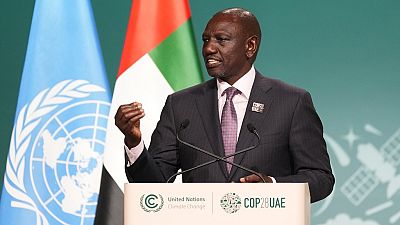January 9th, 2024 By Lennox Yieke
Image : State Department photo by Ron Przysucha/ Public Domain
President William Ruto has announced that 35 state-owned enterprises are slated for privatisation, thrilling stock market executives but dismaying opponents.
According to Kittony, listing of state-owned enterprises could also help address some of the corporate governance concerns surrounding these firms.
“The corporate governance of listed companies far exceeds that of non-listed companies, and there is empirical evidence that better governed companies are more effective platforms for wealth creation.”
Ending the IPO drought
One of the options that the amended law provides for privatising state-owned enterprises is to list them on the stock market through initial public offerings (IPOs). This is the preferred method for Kittony, who says that the NSE is collaborating with relevant regulators such as the Capital Markets Authority (CMA) to facilitate the smooth listing of targeted parastatals.
The Kenya Pipeline Company, which manages the country’s national oil and gas pipeline, is especially attractive to NSE investors, Kittony argues. KPC posted a pre-tax profit of Sh6.2bn (approx. $40m) for the year ending 30 June 2022 on total revenues of Sh26.21bn (approx. $170m) and total assets of Sh129.8bn ($840m), as per its most recent annual report. This makes it one of the most lucrative and valuable public enterprises in Kenya, hence the keen investor interest.
The NSE has not registered a new listing to the bourse since October 2015, when the Stanlib Fahari REIT was listed. The REIT is currently in the process of being delisted from the main investment segment of the NSE. The new privatisation plan is aimed at addressing this IPO drought, with President Ruto noting that his government intends to list 6-10 state-owned enterprises firms in the near future.
“We have established over the past few years that in Kenya we do not have a demand-side problem. There is a lot of demand for both equities and fixed income securities. The problem has always been on the supply side where we don’t have enough products to offer.” notes Kittony, expressing optimism that the renewed privatisation push will help reverse this.
However, privatisation alone is not enough to boost investor confidence. There is also a need to encourage private entities to list on the stock market, he explains. By having both public and private firms listed, Kenya can signal its commitment to market reforms and create more opportunities for domestic and foreign investors.
Kittony argues that privatisation transactions should be well-priced to ensure the government gets enough income from the privatisation exercise and the investors get a fair return.
“The pricing must be done in a way that gives upside to local investors.”
Political risks and viability of business models key concerns
However, not everyold is sold on the potential ease of a privatisation programme. Kwame Owino, CEO of the Institute of Economic Affairs (IEA) – a think tank that facilitates informed debates to influence public policy in Kenya – privatisation has not been successful in Kenya and other East African countries because of various political obstacles.
The first political obstacle that Owino outlines is public resistance arising from lack of trust in the process.
“Privatisation is not easy to sell in the East African region partly because governments are not really trusted. Many people think that privatising is to hand over the nation’s crown jewels to the private sector,” he remarked in a media interview on the topic. There is also likely to be opposition from the country’s trade unions.
Owino says that another obstacle the privatisation process faces is silent but strong opposition from some government officials who may not want to lose the benefits and advantages that come with controlling parastatals.
“Even within the government itself there are many people who enjoy the privileges that come with sitting on boards or in some cases direct procurement with enterprises that are owned by the government. They find it difficult to cede that control.”
Some state-owned enterprises that are slated for privatisation may face low investor interest due to their unviable business models and long history of operating unprofitability. A case in point is Kenya Airways (KQ), in which the government owns a 48.9% stake. KQ has been draining public funds without giving any return on investment for many years. According to the auditor-general, the Treasury gave the national carrier Sh16.27bn ($100m) in 2022 without any loan agreement or recovery mechanism, highlighting the adverse impact of loss-making entities on the government’s finances.
KQ is not alone when it comes to unsatisfactory performance among state-owned-enterprises. A 2022 report by the Treasury’s Public Service Performance Management and Monitoring Unit reveals that the majority of parastatals in Kenya are struggling financially, operationally and strategically, with an increasing number relying on bailouts and subsidies to stay afloat. The survey rated 232 parastatals out of which only 92, a mere 39.6%, achieved their annual performance targets.
The ranking looked at the parastatals’ key mandate, customer experience, corruption prevention, project completion, payment of pending bills, absorption of funds, access to government procurement opportunities for the youth and women as well as internship opportunities for the youth.
Widespread underperformance among parastatals on these key metrics may lower the market value and appeal of state-owned enterprises as investment opportunities, complicating the privatisation process by making it difficult to find suitable investors. Other private investors will believe that they can provide the leadership required to oversee serious reform and a return to profitability.
Overcoming the legal hurdles
The privatisation plan also faces major legal hurdles. Opposition leader Raila Odinga’s party, the Orange Democratic Movement, has challenged the amended privatisation laws in court, arguing that the process should be subjected to a referendum due to the strategic significance of the firms listed for sale.
High Court judge Chacha Mwita in December ruled that the petition by the opposition leader raises important questions that warrant the Court’s attention. “I am satisfied that the petition raises substantial constitutional and legal issues of public importance that require critical examination,” he pointed out in his ruling. Mwita said any planned sales made under the revised law were suspended until Feb 6 2024, when the case will be heard.
The ODM party is sticking to its guns and demanding a referendum, particularly for assets like the Nairobi based KICC. The iconic conference center is a key part of the country’s national heritage, even featuring prominently on bank notes.
“If ever there was a matter over which a referendum was mandatory then it’s the sale of National Assets like KICC, KPC and the others. One generation of greedy leaders cannot just strip a Nation of its assets without reference to the people,” notes Edwin Sifuna, Nairobi senator and secretary general of ODM.
The government faces a tough court battle after ODM’s petition to pause privatisation under the new laws was heard by the High Court. However, it still has a fighting chance to get privitisation back on track. Many factors will influence the ongoing court case, such as the quality of the legal arguments, the evidence presented, and the possibility of dialogue between the government and the opposition. Meanwhile, President Ruto is determined to continue with his plan.
This is partly because Kenya needs to remain in the good graces of its main creditors, particularly the World Bank and the IMF, who have been urging the country to get rid of unprofitable state agencies and merge those that have overlapping functions. The privatisation of these firms is crucial for Kenya to maintain its good standing with its lenders.
Source: AfricanBusiness, 9th January 2024
 afric-Invest
afric-Invest



